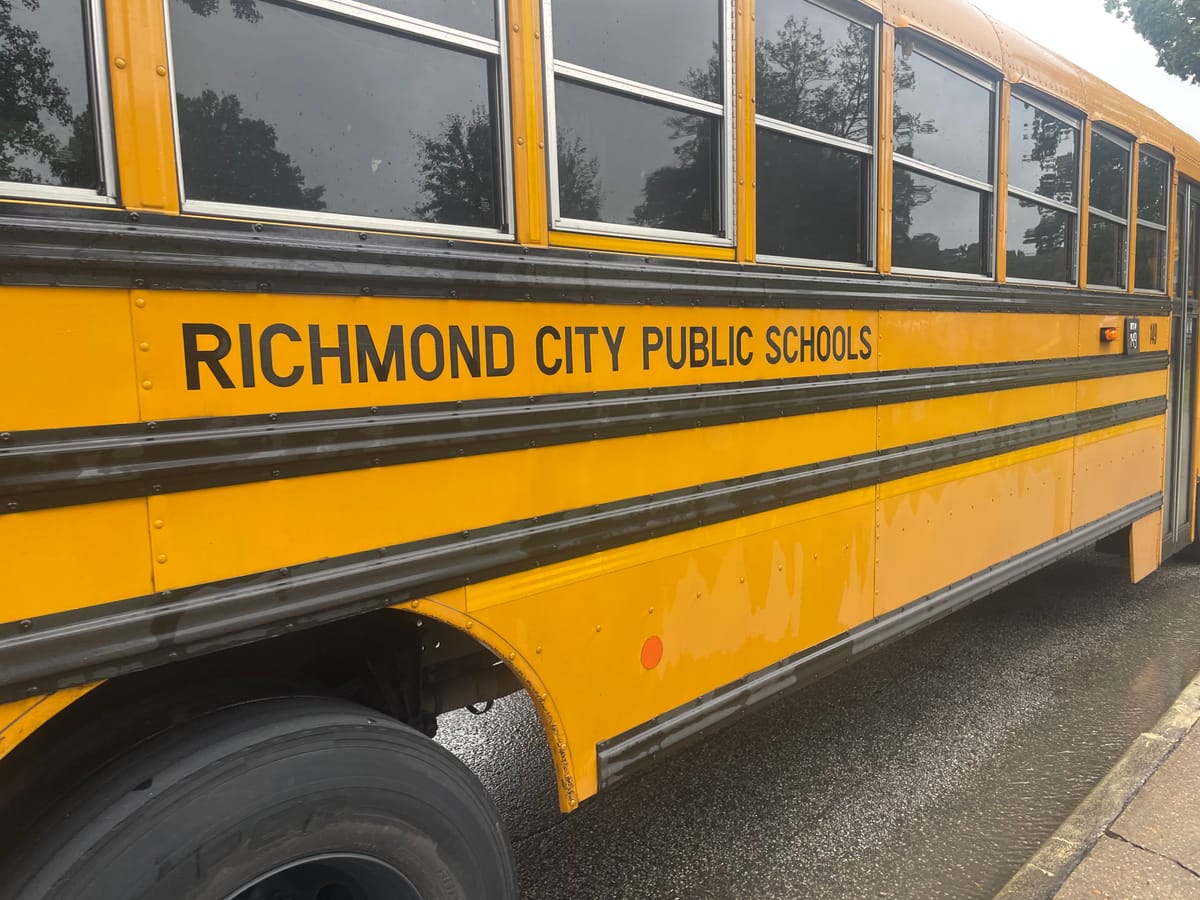
‘We believe in the process’: Richmond School Board must decide whether to change unions’ collective bargaining process with RPS
The Richmond School Board is set to vote Tuesday on major changes to the collective bargaining agreement process Richmond Public Schools has with the four unions representing school employees.
Conversations up to this point have been tense.
Among the contentious points are new policies that prohibit union representatives from meeting with employees to discuss union business during work hours, and do not allow union officials to “interfere in the day to day operations of RPS.”
The school system said those rules are intended to ensure “that negotiations and advocacy do not disrupt the school day or daily operations for students.”
The unions, specifically Richmond Education Association and Teamsters Local 322, have accused the division of censoring workers’ speech with the changes proposed, while opining that the method RPS followed in presenting the revisions was rushed and not inclusive of their input.
The division, on the other hand, denied those claims and said the reason for the proposed changes is a strained budget, as well as feedback it has received from employees. It said the goal is to make the process smoother and more efficient.
It is expected that RPS administrators will illustrate the new rules as streamlining the process and cutting costs, while the unions will express that the changes infringe on their rights. Ultimately, the school board will hear both arguments at the Monday and Tuesday meetings and will get the final say.
Board Chair Shavonda Fernandez (9th District) emphasized that the Board believes in the power of unions and the importance for those groups to have a voice, but she also said guardrails around the process are necessary to “ensure that we’re having a very well thought out process that doesn’t pull away and distract” from helping employees and students.
“It’s a beautiful process. It’s something that most districts are not afforded,” she said in an interview with The Richmonder. “There are a lot of districts that will not touch collective bargaining with a 10-foot pole. But we have courageously embraced the process because we believe in the process.”
Richmond was the first school district in Virginia to allow its employees to collectively bargain, a right that is not guaranteed by the state.
Dueling press releases
The statements – from RPS and the two unions — came after The Richmonder reported that school officials were proposing major changes to the unions’ negotiation process, just days before a new round of bargaining meetings is set to begin. Unions said the decisions to move the changes seem rushed and did not fully include their input.
RPS administration said the proposed changes to the collective bargaining process include “no restrictions on teachers’ free speech” in a statement released on Tuesday.
“RPS has always, and will always, strongly support our teachers’ freedom of expression,” the statement said.
The statement was in response to a joint press release two unions representing teachers, support staff and custodians issued earlier the same day.
The unions alleged that Superintendent Jason Kamras is “attempting to unilaterally weaken workers’ rights” by censoring free speech, implementing pay-cut mechanisms without negotiations, reducing bargaining topics, and weakening the grievance process.
“The superintendent’s conduct thus far has made his intentions clear: to force these changes through as quickly as possible in order to hide the changes from the general public,” their statement said.
A spokesperson for RPS told The Richmonder that the division cannot comment on the matter until after the changes are presented.
Fernandez said that while she and the Board completely stand by the unions and believe in the power of collective bargaining, the unions’ censorship allegation is not a fair assessment.
“The structure of the Board is to oversee the governance process. And we would not allow that on our watch,” she said, responding to the unions’ other assertions. “We’re unified in that we support unions, we support the collective bargaining process, and anything that would diminish that, we’re not going to be a part of.”
RPS said the administration learned that employees were confused with having two different but similar grievance processes. In the collective bargaining resolution draft, officials suggested removing the unions’ grievance process and replacing it with a process adopted by the Virginia Board of Education, which ends in a hearing, but included that if the administration files a complaint against a member, the Board would decide the matter by reviewing written records rather than a hearing.
Impasse procedures were expensive, costing more than $120,000 last year, the division said, resulting in officials proposing to remove an independent panel that would finalize a contract if parties cannot agree. The School Board would instead finalize it.
The district also said employees didn’t want their home address shared automatically with the unions, and removed the provision allowing such home addresses to be included under employees’ contract information in the proposed changes.
The Richmonder is powered by your donations. For just $9.99 a month, you can join the 1,000+ donors who are keeping quality local journalism alive in Richmond.
Potential funding shortfalls another sticking point
Fernandez said that the temporary committee that first gathered to discuss implementing collective bargaining for unions before the resolution passed in 2021 had conversations saying the negotiation process can change in the future.
The division is now experiencing funding shortfalls and is predicting “lean years ahead,” causing the administration to propose the changes now to save money, she said.
Under the new agreement, if RPS does not receive a fully funded budget from the city, the school system is not obligated to provide negotiated salary increases. Previously, a lack of city funding triggered a reopening of negotiations.
When asked about changes that may not be associated with funds – like reducing the number topics that can be discussed during negotiations and allowing members to meet only before and after school times with permission – Fernandez said she will get more information from the administration to understand their reasoning for recommending those too.
The discussions about potentially changing the process first arose in August, Fernandez said but nothing was set until September.
“The Board was very clear in ensuring that what was presented was provided to the union so they had an opportunity to weigh in,” she said.
She confirmed that she received emails from concerned union members about the high-level meetings between the division and the unions so far, leading to her request for the administration to share the draft with members.
When asked about whether all parties had enough time for discussion, she said that it is hard to say. However, she’s proud the Board allowed unions to be involved.
The Board is currently gathering information by speaking with the unions and the administration to decide what it will do about the proposed changes, Fernandez said.
“By the time we get to Monday’s conversation, it’ll be a bit clearer,” she said. “I don’t know if we’re there yet – not to say that we won’t be – but I do think there are a lot of questions we want to have answers to.”
The conversations also include constituents, she said, who she said have told her that the unions have a right to advocate for themselves, which she agrees with.
Contact Reporter Victoria A. Ifatusin at vifatusin@richmonder.org
The Richmonder is powered by your donations. For just $9.99 a month, you can join the 1,000+ donors who are keeping quality local journalism alive in Richmond.






